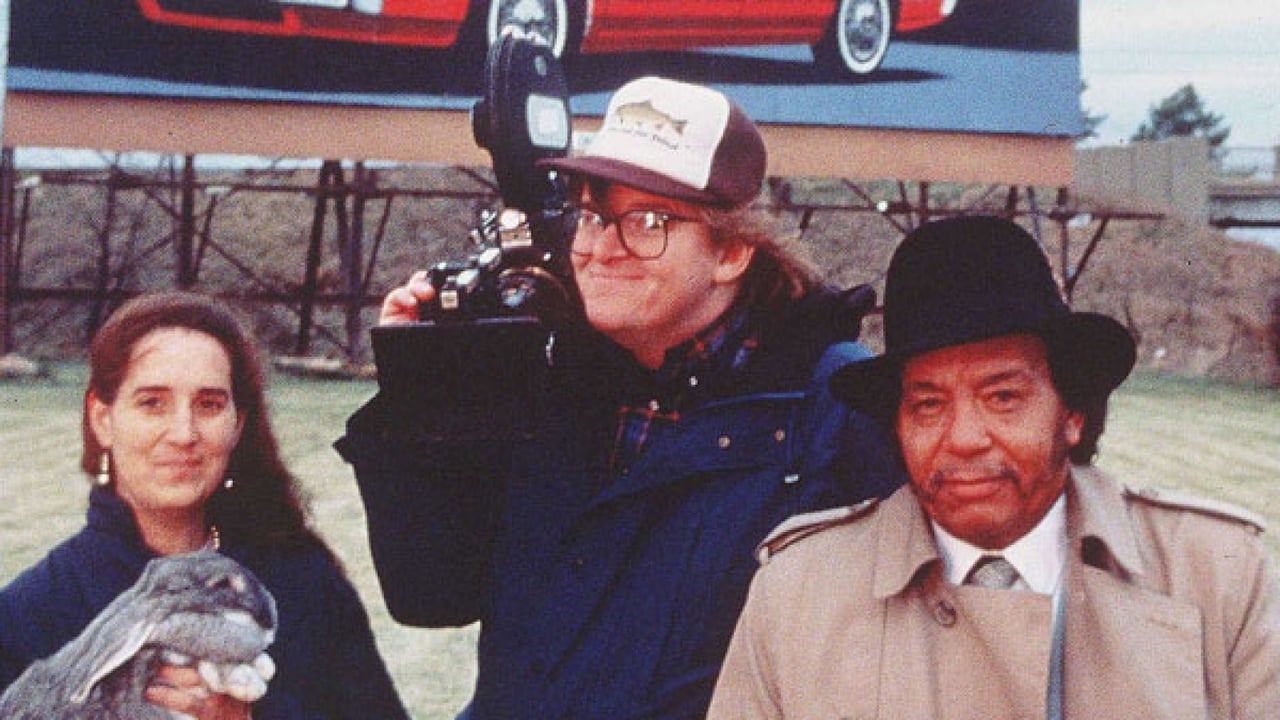

With a visually inventive and stimulating film-making style, I was captivated by Michael Moore's debut feature documentary. While it's a truly impressive specimen as far as structuring and camerawork goes, Moore presents a very tinted perspective that doesn't allow any room for the audience to form any of their own opinions about the subject. With his confrontationally ambushing and venomously-undertoned "interviewing" style Moore doesn't really allow anyone else to be heard. On the rare occasion that he does get an honest opposite opinion or valid argument he simply dismisses them by coincidingly matching the segment with pointed satirical imagery or an angry sort of irony. At times he even pleads for you to feel the plight of the laid off autoworkers yet and then is highly judgemental of how they get on with their lives and survive. While I wish the film had presented a more open perspective (or at least a more subtle message) and had been a little more thought provoking, it still held appeal and had me enjoying Moore's radical technique.
... View MoreMichael Moore recounts his prosperous working middle class life as a child in GM company town of Flint, Michigan. Everybody worked for GM except for Michael. He leaves his small paper he created to go to San Francisco. It doesn't go well and he returns to Flint. In 1985, GM CEO Roger Smith closes factories in Flint. Michael goes on a quest to get an interview with Roger Smith.The criticism has centered on Michael Moore's manipulation of events in the movie. It's a valid argument if this is being measured against traditional documentaries. As a journalistic documentary, this has many flaws and possibly fatal flaws. As a reality-TV persuasion, this is a real ground breaker. While not every line is correct, the overall sentiment hits on a greater truth. Michael may portray himself as the underdog but he's a real giant.
... View MoreIn case you're not aware, Roger and Me faced significant controversy from essentially political opponents, but also some scholars. Moore was charged with selective editing, shifting time relations (so that events seemed to follow one another when they didn't in reality) and so on. It is, however, a bit of an unfair charge, not least because these are frequently used strategies of narration.As it happens, Moore's interwoven personal narrative of his home town is ripe for such explication, not least because the film is very clearly a very personal project. While Moore is clearly a key protagonist, his presence really does enhance the affectiveness of the film. While the precise sequence of events has indeed been tinkered with, this often happens not just for political affect but also narrative coherence. Either way, what happened to Flint is, by any measure imaginable a human catastrophe, and Moore's capacity to relate this is as powerful as can be.
... View MoreRoger & Me is a documentary narrated and directed by Michael Moore. It portrays the regional negative economic impact of General Motors CEO Roger Smith's summary action of closing many auto plants in Flint, Michigan, costing 30,000 people their jobs at the time and economically devastating the city.Once the site of a thriving General Motors plant, Flint went quickly to seed when GM decided to close down and move out. As Moore pokes around what has been described by one magazine as "the worst place to live in America", he finds out how the local populace is coping with GM's betrayal of the American Dream. Among those visited are a family who is evicted just before Christmas, and an enterprising middle-aged woman who set up a thriving business slaughtering and skinning rabbits. Never feigning objectivity,he contrasts the impact of the shutdown on the average Joes and Janes with the diffident reaction of Flint's power elite. The latter's patronizing attitude towards the unemployed multitudes is succinctly captured in the scenes in which visiting celebrities Robert Schuller, Anita Bryant, Bobby Vinton and Pat Boone exhort the citizenry to grin and bear it. Even more out of sync is "Miss Michigan" Kaye Lani Rae Rafko, who in her morale-boosting speech to the disenfranchised GM employees begs them to pull for her in the upcoming Miss America pageant! The film's through line is Moore's futile effort to locate GM chairman Roger Smith, so that he can show Moore first-hand the utter devastation of Flint.In this documentary,Michael Moore makes a good movie, and without inventing so many facts inspite of his obviously conceited and simple- minded attitude.Also,this is a this is a scathingly biting satire of Reagonomics that captures the zeitgeist of the late 1980's. This portrait of Reagan's America and the tarnish on the American dream comes down to a simple question: what is corporate America's responsibility to the country's citizens? That's a question no one at GM wants to answer.
... View More